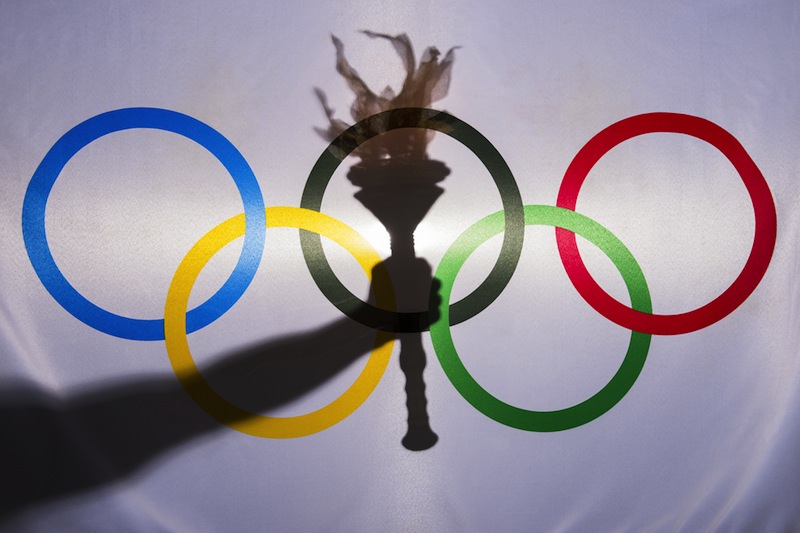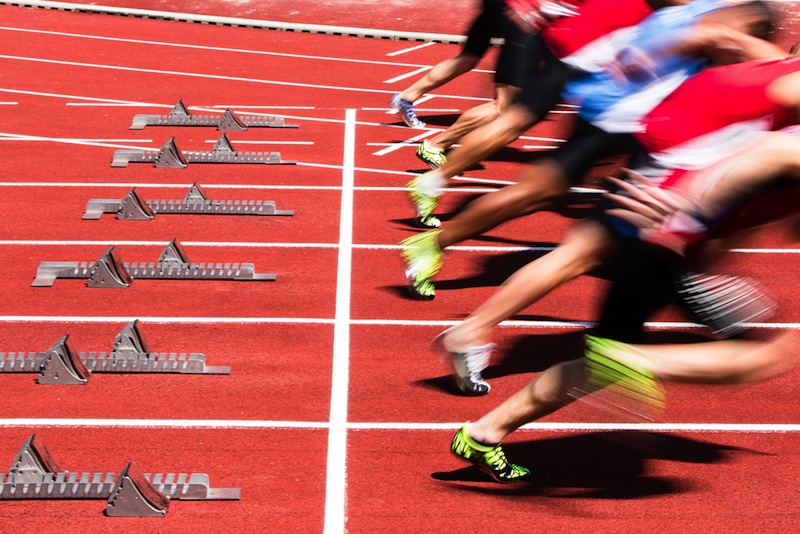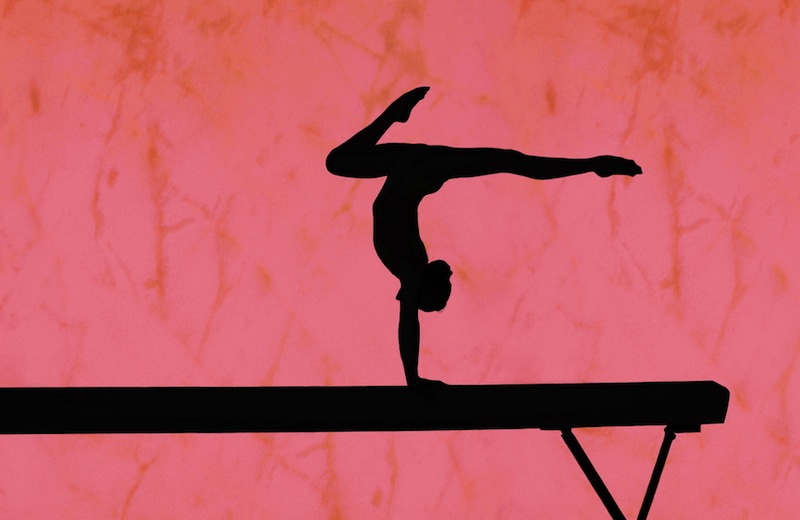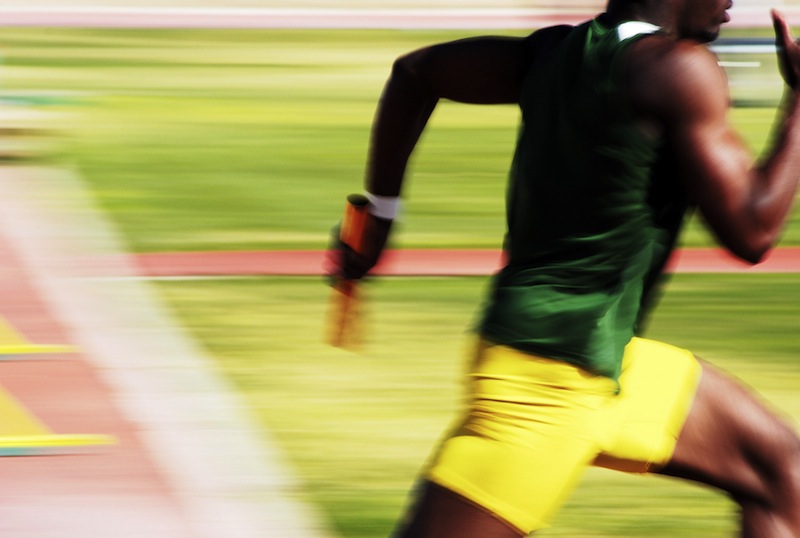10 Biggest Doping Scandals in Olympics History
Get the world’s most fascinating discoveries delivered straight to your inbox.
You are now subscribed
Your newsletter sign-up was successful
Want to add more newsletters?

Delivered Daily
Daily Newsletter
Sign up for the latest discoveries, groundbreaking research and fascinating breakthroughs that impact you and the wider world direct to your inbox.

Once a week
Life's Little Mysteries
Feed your curiosity with an exclusive mystery every week, solved with science and delivered direct to your inbox before it's seen anywhere else.

Once a week
How It Works
Sign up to our free science & technology newsletter for your weekly fix of fascinating articles, quick quizzes, amazing images, and more

Delivered daily
Space.com Newsletter
Breaking space news, the latest updates on rocket launches, skywatching events and more!

Once a month
Watch This Space
Sign up to our monthly entertainment newsletter to keep up with all our coverage of the latest sci-fi and space movies, tv shows, games and books.

Once a week
Night Sky This Week
Discover this week's must-see night sky events, moon phases, and stunning astrophotos. Sign up for our skywatching newsletter and explore the universe with us!
Join the club
Get full access to premium articles, exclusive features and a growing list of member rewards.
A competitive edge

Some athletes seeking to push the boundaries of their personal performance may find it tempting to grab a competitive advantage by looking beyond their training and nutrition. And on the world's biggest stage, at the Olympic Games, there are all too many instances of athletes who have turned to the use of a chemical advantage to gain a leg up on their fellow competitors.
Most performance-enhancing substances are banned in sports, but there are still many that either can't be reliably detected or that have yet to be classified. In Olympics history, cheaters often face swift punishment, but sometimes, official rulings take years to resolve. Secondary drug tests may catch the offender after the competition, or arbitration may drag on. And no matter how clearly the rules are defined, debates over what actions should be punished, and how severely, endure. [Doping at the Games: Why the Olympics Banned These Drugs]
Here are some of the biggest doping scandals in modern Olympics history.
Lance Armstrong (USA), 2000

After his first Tour de France victory in 1999, American cyclist and cancer survivor Lance Armstrong immediately became an icon of resilience. As his popularity grew, so did the profile of Livestrong, his charitable cancer organization. But his seven Tour de France titles (from 1999 to 2005) were revoked in 2012 after years of suspicion culminated in the exposure of an elaborate, multifaceted doping scheme within Armstrong's U.S. Postal Service team.
In light of that evidence, in 2013, the International Olympic Committee nullified the bronze medal Armstrong won for the men's road time trial at the 2000 Summer Olympics in Sydney, Australia. Soon afterward, Armstrong delivered his first public admission of guilt in a terse televised interview with Oprah Winfrey. He did not return the medal for another eight months, reported NPR.
Luiza Galiulina (Uzbekistan), 2012

Luiza Galiulina was a gymnast from Uzbekistan who in 2012 was set to make her second appearance at the Summer Olympics in London. After testing positive for furosemide, a diuretic that is considered to be a masking agent or weight-loss supplement, Galiulina was provisionally banned from the games. Galiulina denied knowingly taking the substance, and she said that her mother had given her a heart medication the previous month. Furosemide is also used to treat high blood pressure or congestive heart failure.
Galiulina missed a scheduled competition in artistic gymnastics due to the ban. Days later, when her backup sample also tested positive, she was removed from the Olympic Village, and afterward she was given a two-year suspension.
Get the world’s most fascinating discoveries delivered straight to your inbox.
Marion Jones (USA), 2000

A 2003 investigation into the Bay Area Laboratory Co-operative (BALCO), which supplied steroids to a variety of high-profile athletes, led to suspicions that American sprinter Marion Jones had used performance-enhancing drugs. But, it wasn't until 2007 that Jones admitted to past use of a designer steroid known as "the clear." Jones said she began using the steroid just weeks before the 2000 Summer Olympics in Sydney.
Jones returned the five medals she won in those games, including gold medals in the 100-meter and 200-meter races, and the 4 x 400-meter relay. Jones had also nabbed bronze medals for long jump and the 4 x 100-meter relay. All of Jones' race results after Sept. 1, 2000, were expunged, and she was given a two-year ban.
In 2010, the Court of Arbitration for Sport ruled that Jones' relay teammates could keep their medals, based on rules in place at the time of competition.
Russian team, 2012, 2014 & 2016

Russian athletes have been dogged by doping suspicions at several Olympic Games, but these allegations were made worse by recent evidence of pervasiveand persistentdoping schemes, reported the New York Times. This includes the revelation of a sample-swapping systemto protect cheating athletes, in an effort to boost Russia's medal count when the country hosted the 2014 Winter Olympics in Sochi.
Based on a report from the World Anti-Doping Agency, the International Olympic Committee said, "all Russian athletes … are considered to be affected by a system subverting and manipulating the anti-doping system." Yet,the organization left it to the governing bodies of each sport to determine the eligibilityof individual athletes. As a result, 271 of 389 Russian athleteswere cleared for competition at the 2016 Summer Olympics in Brazil, reported CNN.
The International Paralympic Committee banned the entire Russian federationfrom competing at the Rio Paralympics.
Ben Johnson (Canada), 1988

Three days after sprinting to glory in the 100-meter final at the 1988 Summer Olympics in Seoul, Korea, Canadian track star Ben Johnson was disqualified for a positive test for the steroid stanozolol. Johnson had set a new world record time of 9.79 seconds in the race. When the positive drug test was revealed, Johnson denied any wrongdoing, but later admitted to using a different steroid, furazabol, while training for the Olympics.
Johnson's records were removed and the gold medal was awarded to American Carl Lewis instead. In 1993, Johnson failed a second drug test, which turned up an elevated testosterone-to-epitestosterone ratio, and the International Amateur Athletic Federation, the governing body of Track and Field, banned him for life.
Nicklas Backstrom (Sweden), 2014

A positive test for pseudoephedrine kept Swedish hockey star Nicklas Backstrom out of the gold-medal game at the 2014 Winter Olympics in Sochi. Sweden criticized the timing of the suspension announcement, which came just hours before the game.
Olympic officials eventually determined that Backstrom hadn't intended to gain a competitive edge by taking a banned substance. The hockey player took medication at the advice of a team doctor and even declared its use in paperwork. Backstrom later received a medal and only a reprimand from the World Anti-Doping Agency. It was cold comfort: a short-handed Swedish team lost to Canada 3-0, taking silver.
Andreea Raducan (Romania), 2000

Romanian gymnast Andreea Raducan was disqualified and stripped of the gold medal she won in the all-round gymnastics competition at the 2000 Summer Olympics in Sydney, after she tested positive for pseudoephedrine. The drug, a stimulant that is the active ingredient in medicines such as Sudafed, was banned by the International Olympic Committee but not the International Gymnastics Federation.
Raducan, then 16, received the pseudoephedrine in cold medication from a team doctor, who was subsequently suspended for the next two Olympic games.
Earlier, Raducan had won gold in team gymnastics and a silver in the vault. She tested negative following those events and was allowed to keep the medals. In 2015, Raducan appealed the status of her all-around gymnastics gold medal to International Olympic Committee president Thomas Bach in person, but the result was not reinstated.
Tyson Gay (USA), 2012

American sprinter Tyson Gay was part of the silver-medal-winning 4 x 100–meter relay team at the 2012 Summer Olympics in London. But the next year, Gay failed three drug tests in rapid succession, prompting the erasure of results dating back to the London games. Gay, then 31, immediately dropped out of competition, returned his medal and cooperated with U. S. Anti-Doping Agency investigators. He served only a one-year suspension.
In 2015, the International Olympic Committee stripped Gay's relay teammates of their medals.
Ross Rebagliati (Canada), 1998

At the 1998 Winter Olympics in Nagano, Canadian snowboarder Ross Rebagliati won a gold medal in giant slalom. Rebagliati subsequently tested positive for marijuana, after which a series of Olympic boards voted to strip him of the medal. The ruling was unusual, because cannabis was not on the International Olympic Committee's list of banned substances at the time (it was added a couple of months after the games concluded), and it is not generally considered to be a performance-enhancing drug. An appeal to the Court of Arbitration for Sport was quickly rewarded, and Rebagliati was able to keep his medal.
Rebagliati is now the face of a marijuana dispensary branding company.
Johann Muhlegg (Spain), 2002

Cross-country skier Johann Muhlegg competed for his native Germany in three Olympics prior to representing Spain in the 2002 Winter Olympics in Salt Lake City. Muhlegg won gold in the 30-kilometer and 50-kilometer races, and the 10-kilometer pursuit, but after a positive test for darbepoetin, a then-new prescription drug that promotes red blood cell production, he was disqualified from the 50-kilometer race.
Other tests conducted throughout the competitions had been inconclusive, but Muhlegg was eventually stripped of his other medals as well.
 Live Science Plus
Live Science Plus










